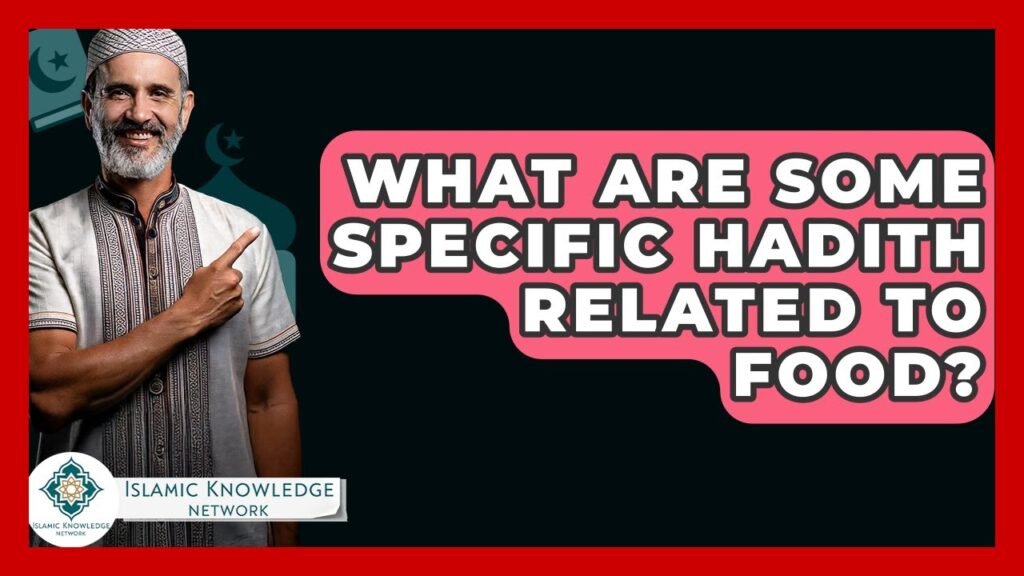You are here to read: What Hadiths Discuss Food in Islam? – A Thoughtfully Written Guide Offering Spiritual Wisdom and Travel Advice for Every Pilgrim who is going on holy journey of Hajj or Umrah.
In the rich tapestry of Islamic teachings, Hadith play a crucial role in guiding believers on various aspects of life, including how to consume food mindfully and ethically. With countless traditions attributed to the Prophet Muhammad (peace be upon him), these Hadith provide invaluable insight into dietary practices that not only ensure physical health but also promote spiritual well-being. This exploration into specific Hadith related to food will illuminate the significance of eating as an act of worship and demonstrate how the Prophet’s guidance can influence our daily choices.
As the Islamic Knowledge Network aims to deepen our understanding of these teachings, it’s essential to remember that our commitment to knowledge extends beyond food. At Airlink Hajj and Umrah, we strive to keep you informed about every aspect of your spiritual journey, offering the latest updates on Hajj and Umrah preparations on our blog. Whether you’re seeking guidance for a pilgrimage or exploring the Hadith that enrich your daily life, we are here to support your quest for spiritual growth and understanding. Join us as we delve into the wisdom of the Hadith regarding food, and let it enhance your journey in faith.
What Hadiths Discuss Food in Islam?
In Islam, food is not just sustenance; it holds spiritual significance. Several Hadiths highlight the importance of consuming wholesome and halal food. One notable Hadith emphasizes the Prophetic practice of eating with the right hand and avoiding excessiveness in consumption. The Prophet Muhammad (peace be upon him) said, "Eat together and do not eat separately, for the blessing is in being together" (Sunan Ibn Majah). This underscores the communal aspect of meals, promoting unity among believers.
Additionally, Islam encourages moderation in eating. The Prophet advised, "Eat and drink, but be not excessive. Indeed, He likes not those who commit excess" (Quran 7:31). These teachings not only guide dietary habits but also resonate deeply during significant occasions like Hajj and Umrah, where communal meals often take place. For the latest updates on Hajj and Umrah, including spiritual tips and rituals, visit our blog at airlinkhajjandumrah.com.
FAQs: What Hadiths Discuss Food in Islam?
1. What is a Hadith?
A Hadith is a recorded saying, action, or approval of the Prophet Muhammad (peace be upon him), serving as a significant source of guidance in Islamic teachings alongside the Quran.
2. Are there specific Hadiths that detail dietary laws in Islam?
Yes, numerous Hadiths discuss dietary laws, emphasizing what is halal (permissible) and haram (forbidden), such as the consumption of pork and alcohol, and the importance of eating lawful and wholesome food.
You're at the middle of this awesome post at AirlinkHajjandUmrah.com through: What Hadiths Discuss Food in Islam?. Keep reading, it gets better!
3. What do Hadiths say about eating habits and manners?
Hadiths promote good eating manners, such as eating with the right hand, not wasting food, sharing meals, and expressing gratitude before and after eating.
4. How do Hadiths view the act of sharing food?
Many Hadiths emphasize the virtue of sharing food, demonstrating compassion and fostering community spirit. Sharing meals is encouraged as an act of kindness and charity.
5. Are there Hadiths that highlight specific foods mentioned in Islam?
Yes, certain Hadiths mention specific foods such as dates, honey, olives, and pomegranates, often highlighting their health benefits and importance in the Islamic tradition.
What Are Some Specific Hadith Related To Food? In this informative video, we will discuss the role of Hadith in shaping Islamic views on food and consumption practices. We’ll highlight specific teachings from the Prophet Muhammad that guide Muslims in their dietary choices and eating habits. Discover how these teachings promote moderation, respect for food, and community sharing, while also outlining what is permissible and what should be avoided.
Learn about the significance of starting meals with the phrase “Bismillah” and the importance of expressing gratitude after eating. We will also explore how these practices influence daily life for many Muslims today, encouraging a mindful approach to food that emphasizes health and spiritual discipline. Join us as we unpack the teachings of the Prophet and their relevance in contemporary Islamic culture.
Don’t forget to subscribe to our channel for more insightful content on Islamic teachings and culture!
⬇️ Subscribe to our channel for more valuable insights.
🔗Subscribe:
#IslamicCulture #Hadith #FoodInIslam #ProphetMuhammad #IslamicTeachings #ModerationInEating #FoodRespect #CommunitySharing #HalalFood #IslamicManners #Gratitude #HealthyEating #IslamicLifestyle #CulturalPractices #MindfulEating
About Us: Welcome to the Islamic Knowledge Network, your go-to source for deepening your understanding of Islam. Our channel is dedicated to exploring the rich tapestry of Islamic teachings, history, and culture. Here, you will find engaging discussions on the Quran, Hadith, and the lives of the Prophets, alongside contemporary issues faced by the Muslim community.
That wraps up What Hadiths Discuss Food in Islam?. Thanks for sticking with us till here! Share this: What Hadiths Discuss Food in Islam? with your friends.
Check our homepage at Air Link Hajj & Umrah for more awesome updates.
Some interesting posts are: 1: Umrah Mubarak, 2: When is Umrah closed 2026?, 3: When does Umrah start after Hajj 2026?
Mushu, an experienced Saudi Arabia traveler and writer, shares insightful tips and spiritual reflections to enhance Hajj and Umrah journeys for fellow pilgrims. He has been to Makkah and Madina from 2016 to 2023 many times and his posts will reflect this.







